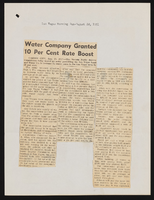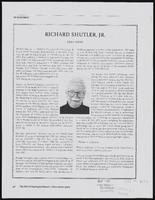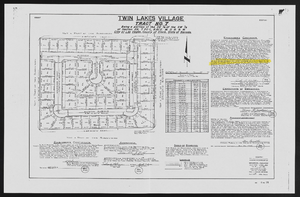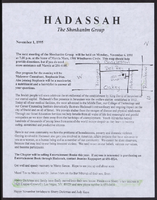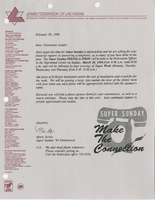Search the Special Collections and Archives Portal
Search Results
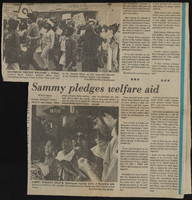

Meeting minutes for Consolidated Student Senate, University of Nevada, Las Vegas, February 21, 1978
Date
1978-02-21
Archival Collection
Description
Agenda and meeting minutes for the University of Nevada, Las Vegas Student Senate. CSUN Session 6 Meeting Minutes and Agendas.
Text
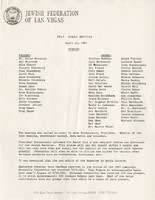
Jewish Federation correspondence, meeting minutes, and other records, item 07
Description
Board meeting minutes for the Jewish Federation of Las Vegas, Nevada, April 22, 1987.
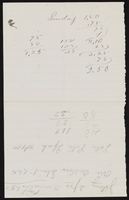
Stewart family banking records and receipts
Date
1904 to 1948
Archival Collection
Description
Stewart family banking records and receipts
Text
Pagination
Refine my results
Content Type
Creator or Contributor
Subject
Archival Collection
Digital Project
Resource Type
Year
Material Type
Place
Language
Records Classification


